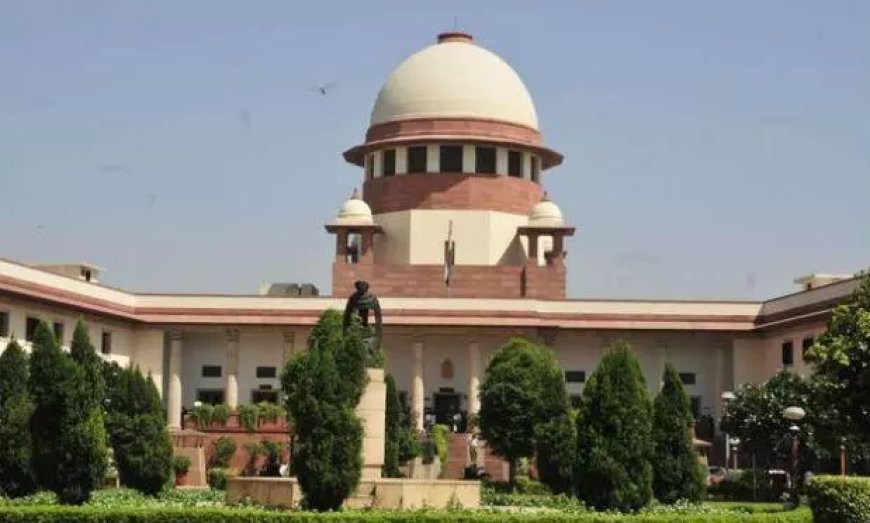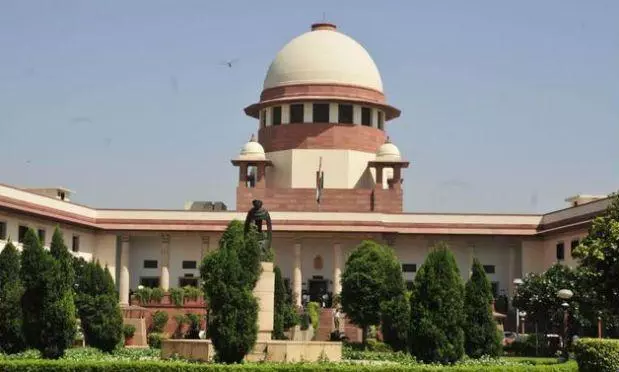Dilip Cherian | Why are states dodging mandate of apex court on police reforms?
Several states continue defying 2006 DGP appointment guidelines, frustrating the Supreme Court's efforts to ensure merit-based policing


The appointment of directors general of police (DGPs) is one of the crucial issues the Supreme Court has, once again, had to remind states of their responsibilities. It’s perplexing that certain states still appear to be choosing not to follow the landmark 2006 Prakash Singh judgment, almost 20 years after it was rendered.
The apex court recently asked for explanations of Andhra Pradesh, Telangana, Uttar Pradesh, Punjab, Uttarakhand and West Bengal. These states and Jharkhand, which has since replied, were accused of flouting court-mandated procedures for selecting DGPs in a suit brought by the Jan Sewa Trust. The trust claims that there have been numerous infractions of the rules, including bypassing the requirement of a two-year fixed tenure for police chiefs and ignoring the mandate to select from a UPSC-prepared panel of three senior-most, eligible IPS officers.
The Prakash Singh guidelines matter. The 2006 verdict was a watershed moment aimed at insulating the police from political interference and ensuring merit-based leadership. Fixed tenures and structured selection processes are designed to enhance stability and professionalism in policing — a crucial factor for public trust and effective law enforcement.
Yet, states are dragging their feet or outright ignoring these directives. While the court has now given six weeks for responses and four weeks for rejoinders, one can’t help but wonder — why the delay in following a 17-year-old mandate? Mere bureaucratic inertia, or something more deliberate?
The court’s frustration is justified. With the current complex law-and-order challenges, shouldn’t states prioritise fair and transparent police leadership? After all, police reforms aren’t just about hierarchy — they’re about justice, accountability, and public confidence. States ignoring these directives owe the nation an answer — and soon.
Public spats and missing files
Kerala’s bureaucracy seems to have traded its famed decorum for a public display of accusations and counter-accusations. Suspended IAS officer N. Prasanth took to Facebook to lob serious allegations against senior colleague A. Jayathilak, accusing his office of leaking sensitive information about missing files related to initiatives for Scheduled Castes (SC) and Scheduled Tribes (ST) empowerment.
At the centre of the storm is Unnathi, a project aimed at uplifting SC/ST communities. A newspaper report, allegedly sourced from a letter by Mr Jayathilak to chief minister Pinarayi Vijayan, claims Mr Prasanth failed to hand over critical documents to his successor, K. Gopalakrishnan. Mr Prasanth, however, fired back with claims of a conspiracy, accusing Mr Jayathilak and Mr Gopalakrishnan of tampering with digital records to frame him.
The allegations, which include a colourful reference to “time travel” in altering e-file dates, raise troubling questions about administrative propriety. While Mr Prasanth has been charged with insubordination and tarnishing the government’s image, the silence from Mr Jayathilak’s side only fuels speculation. Meanwhile, the chief secretary had earlier issued a memo against Mr Prasanth for derogatory comments and vilification of colleagues, adding another layer to this bureaucratic soap opera.
This very public feud underscores a growing concern: Are digital tools meant for efficiency now being weaponised in turf wars? The IAS Officers’ Association’s intervention will be critical to restoring order and ensuring that bureaucratic spats do not overshadow governance. Surely Kerala deserves better than senior officials locked in virtual mudslinging while vital administrative initiatives hang in the balance. What is needed is accountability, professionalism, and a reminder that public service isn't meant to be a Twitter feud gone rogue.
Ajay Seth steps up amid Budget rush
Ajay Seth, secretary of economic affairs, has been handed an extra set of responsibilities as the interim revenue secretary. According to the ACC order, he’ll hold this dual charge until a permanent appointment is made or further instructions are given.
Mr Seth, a Karnataka cadre IAS officer from the 1987 batch, is known for his steady hand in economic affairs. With a BTech in mechanical engineering and an MBA, he’s been leading the department of economic affairs since April 2021. And now, with the Union Budget right around the corner, he finds himself in the spotlight again.
The vacancy arose after Sanjay Malhotra, the outgoing revenue secretary, was named the new RBI Governor earlier this week. The timing left little room for delay — Budget preparations are at full tilt, and the ministry needed someone who could hit the ground running.
Fortunately, Mr Seth’s no stranger to Budget discussions. Sources within the ministry point out his extensive experience in financial policymaking, making him a natural fit for the role.
It’s a high-stakes moment, no doubt, but Mr Seth seems to have the chops for the challenge. With his deep understanding of the ministry’s workings, his appointment ensures there’s no hiccup in the Budget process. The question now is: how long will he juggle these dual roles? For now, all eyes are on him to deliver under pressure.






































